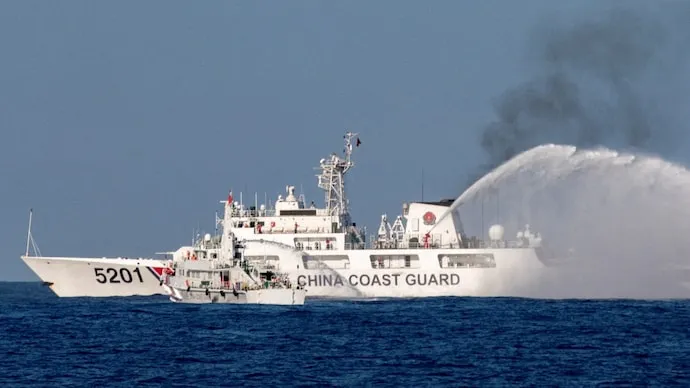Tensions Rise Between China and Japan Amid Taiwan Dispute

Relations between China and Japan have reached a new low, with escalating tensions primarily stemming from comments made by Japanese Prime Minister Sanae Takaichi regarding Taiwan. The conflict was ignited when Takaichi suggested that any Chinese military action against Taiwan could prompt a military response from Japan.
The Chinese consul general in Osaka, Xue Jian, responded aggressively on social media, threatening severe consequences for Takaichi. His post, which was later removed, included the warning, "There would be no choice but to cut off that filthy head without a moment's hesitation." This statement reflects the growing animosity between the two nations.
In a related move, the Chinese embassy in Tokyo issued a travel advisory for its citizens, cautioning them against visiting Japan due to "serious safety risks," as reported by Bloomberg News. This advisory comes as a direct response to the escalating rhetoric surrounding Taiwan, where China has warned Japan of a "crushing defeat" should it attempt to intervene militarily.
The implications of these tensions are significant. Following China's warning, shares of Japanese tourism and retail companies experienced a sharp decline. China is a vital source of tourism for Japan, with approximately 7.5 million Chinese visitors contributing substantially to the Japanese economy each year.
During a parliamentary committee meeting on November 7, Prime Minister Takaichi articulated Japan's position, stating that a Chinese naval blockade or similar actions against Taiwan could result in a military response. She remarked, "If it involves the use of warships and military actions, it could by all means become a survival-threatening situation." This declaration has been perceived as provocative by Beijing, prompting China to dispatch four armed Coast Guard ships to patrol the contested Diaoyu and Senkaku Islands, which are claimed by China but under Japanese control.
In an effort to de-escalate the situation, Japan has initiated diplomatic discussions with China. Masaaki Kanai, Japan's Director General of the Foreign Ministry's Asian and Oceanian Affairs Bureau, travelled to Beijing on November 17 for talks with his Chinese counterpart Liu Jinsong. Kanai is expected to clarify that Japan's security policy remains unchanged amidst the rising tensions.
These developments occur against a backdrop of Japan's economic challenges, with the country recently reporting a 0.4% contraction in its economy for the third quarter of 2025, according to Nikkei Asia. The potential for further economic retaliation from China could exacerbate these difficulties, especially as an estimated 6.7 million Chinese tourists visited Japan in the first eight months of 2025 alone.
The deteriorating relations come just weeks after a meeting between Prime Minister Takaichi and Chinese President Xi Jinping, where they sought to strengthen bilateral ties. However, the situation has since unravelled, highlighting the fragility of diplomatic relationships in the region.
China continues to assert its claim over Taiwan, viewing it as part of its territory under its One China policy. The Chinese embassy in Japan emphasised its commitment to peaceful reunification but also stated that it would not renounce the use of force or tolerate any activities promoting Taiwanese independence. Chinese Defence Ministry spokesperson Jiang Bin warned on November 14 that Japan would face severe consequences if it did not heed historical lessons and chose to intervene in the Taiwan issue.
As the situation develops, both countries appear to be at a crossroads, with the potential for further escalation posing risks not only to their bilateral relations but also to regional stability in East Asia.

Bangladesh Seeks Extradition of Sheikh Hasina Following Death Sentence

Tom Cruise Receives Honorary Oscar at Governors Awards Ceremony

Anand Mahindra Highlights Skilled Worker Shortage in the US

Supreme Court Raises Concerns Over Liquor in Tetra Packs





